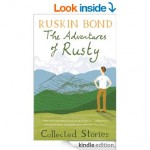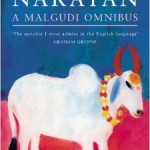The Summer Reading Challenge to libraries is what Christmas is to retail. All consuming, incredibly busy, and feeling like it will never end. Fortunately for library staff, we don’t get a soundtrack on repeat while we do it.
For full disclosure it should also be noted that it’s incredibly fun. The premise of the challenge brings smiles – Reading for Pleasure. Reading for pleasure while also being bribed with stickers and activities along the way, and then receiving a medal and certificate after reading 6 books. Frankly, wouldn’t we all like to occasionally be given stickers and medals for doing something we like to do.

One of the wonderful things about the challenge is that reading for pleasure is at the heart of everything. This isn’t the time for book lists and “shoulds”. If the child likes to read books about fairies, then they should read books about fairies. Do they like Beast Quest? Beast Quest it is. Some children feel that the challenge isn’t for them as they don’t like stories. That’s fine.
Do they like Star Wars, or learning to code, or Minecraft, or dinosaurs? Reading non-fiction counts too. It’s still reading for fun.
Children (or adults for that matter) shouldn’t be ashamed of what they like to read.
If it’s fiction or non-fiction. If it’s seen as too young to be read at their age. If they prefer to read a paper-based book or an e-book, or maybe even listen to one as an audiobook. If they enjoy it, why should it matter to anyone else.
The Summer Reading Challenge is here to encourage that joy.
Some children will be reading over the holiday’s anyway, but for some reading has become a chore where reading and fun are mutually exclusive things. That’s where doing outreach and going into schools (or community centres for those who are home schooled) helps. It’s easy to get a child who’s already in the library to read a book for fun with the promise of stickers (and some of them are even SMELLY STICKERS – ooohhhhh!).

The hard part is getting children into the library in the first place. Their parents might not be library users so they’ve never had access to such a range of books. They might have developed the attitude that reading is boring or hard, and there are far more exciting things to do. Whatever the reason, the Summer Reading Challenge is here to try and remind them that reading can be joyful and exciting.
They just have to find the right book for them.
My favourite part of the challenge is the outreach we do beforehand (and seeing the proud smiles when the children get their very own medal). When I first joined the library and heard that we did school assemblies to encourage the children to take part in the challenge, I will admit, my mouth did go a little dry. As it did the first time I stood in front of 900 children at one of our bigger assemblies. Now though, I love it.
I love getting the children cheering about books. I love getting them so excited (sorry teachers) about joining up that when the end of the day comes and their parents ask how their day was, they tell them they want to go to the library. I love when they come into the library and proudly tell me that I went to their school and made books sound like fun.
We do our assemblies in pairs and the biggest tip I give anyone learning to do them is to remember that children love it when you mess up! If you do the assembly as flawlessly as you planned then you can go away knowing you’ve done a good job. If you drop something, forget what you’re saying, have IT problems, or even have a poster fall on your head, then the children will laugh and experience it as a pantomime (and yes, I have had all of these things happen to me. I was told by multiple children at a later date in the library that the poster falling on my head was the funniest thing they had ever seen. Yes, they are laughing at you, but it’s not personal, it’s pantomime).
Tip for library staff – If you do go into schools then warn the teaching staff before the assembly starts that you do actually want the children to make noises (in appropriate sections). Otherwise the staff may shush them when you’ve encouraged the children to respond to you and the children will associate your talk with them getting into trouble. It might also help to learn what the school’s method is to bring quiet, like hands above your head or a clap rhythm. Whatever it is, it’s useful to know that you can bring over-excited children (excited about reading – Woohoo) back to listening to you. Just ask the teaching staff.
Another library staff tip for assemblies – When the assembly has finished and they are filing out, don’t busy yourself too much packing up. Look at the children. Make eye contact with at least some of them. Smile. It really does make a difference. If nothing else it makes them feel seen, feel special (and surely that’s worth it in itself). It also makes them feel more connected to what you’ve just been talking about. If they weren’t sure about taking part before, that may have just tipped the scales.

Once the challenge has started, our library likes to run a variety of activities throughout the school holidays to keep the children wanting to come back once the initial excitement of signing up has waned. This year the Reading Agency who run the Summer Reading Challenge have created a wonderful theme which the children seem to be really enjoying.

Space Chase is the theme for the 20th Summer Reading Challenge which links in with the 50th anniversary of the moon landing. Naughty aliens have stolen books from the moon library and the Rocket family are on the case to save the books and introduce the wonders of the library to the aliens. It’s a great theme to play with. We create a variety of craft activities that run weekly with the Space Chase theme. We also have endless amounts of colouring in, a treasure hunt around the library, and for the older children activities like our Creative Writing Club. Libraries are fun places.

Reading for pleasure is so important for children and we’re proud to be a small part of it. The library I work in is only reasonably small but we’ve already signed up over 500 children to take part this year and we hope to see many more before the end of the holidays.

If you know of a child between 4-11 then do encourage them to take part in the challenge. There aren’t many things in this world which are free and bring this much joy.
Visit your local library and let the Space Chase begin!

Jane Groves works at Totton Library in Hampshire. When she’s not inflicting books and stickers on children, she can be found working as a Medical Engineer and writing novels for teenagers.
Follow Totton Library – @TottonLibrary & Jane Groves – @JaneGrovesBooks










